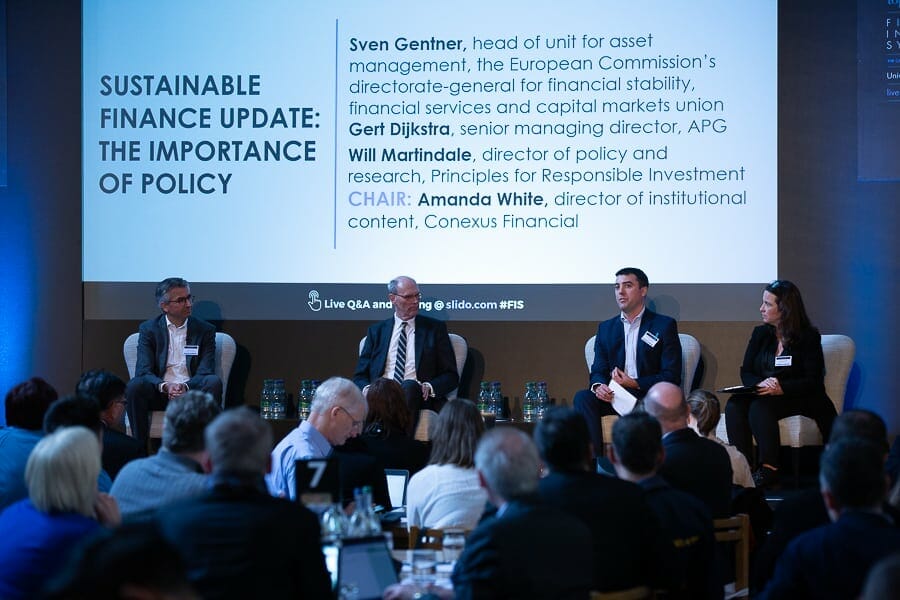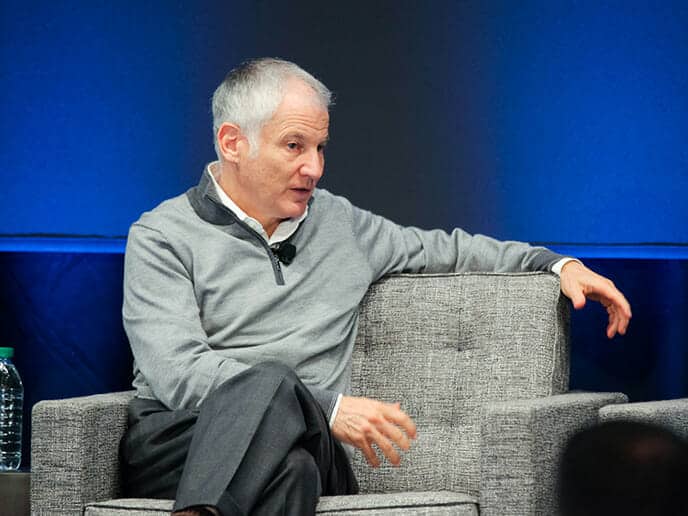The 13th Fiduciary Investors Symposium at Cambridge University brought together more than 70 asset owners from 15 countries to discuss investment opportunities and risk. With a focus on geopolitical and portfolio risk the event saw discussion on the first day centre around asset owners responsibility to engage with policymakers, the integration of ESG and the sustainable development goals as well as barriers to long term investing.
At the Cambridge event Sven Gentner, head of unit for asset management at the European Commission’s directorate-general for financial stability, financial services and capital markets union discussed the European Parliament’s regulation which was passed in March requiring financial market participants to disclosure requirements around sustainability for the first time.
He said the expert groups which included industry participants had contributed to focusing on the goals set for 2030, and the fundamental belief is that increased information visibility will help redirect investment to where it is needed.
Joining the panel discussion Will Martindale, director of policy and research at the Principles for Responsible Investment encouraged investors of all sizes to get involved with policy development.
Delegates discussed the best way to engage with policy makers and exert their influence and ideas, with panellist Gert Dijkstra, senior managing director of APG Asset Management demonstrating the experience of APG in liaising with policy makers around climate change and carbon pricing in many jurisdictions. APG has set targets to reduce its carbon footprint by 25 per cent by 2020 and double sustainable investments to €58 billion.
Gentner emphasised the importance of the EC getting input from the industry in shaping policy, pointing out the final report from the High-Level Expert Group was very close to the final regulation.
Brett Himbury, chief executive of IFM Investors revealed how an asset manager defines its behaviours and processes as responsible.
“Be authentic and don’t stand for anything that is inconsistent with that,” he said.
He said asset managers need to think about their investors and societies and how to rebuild public trust.
“The world needs growth and is limited in how to drive it, pension funds have a real challenge in seeking out returns, and the world mistrusts institutions,” he said. “If you put those three things together you get a situation where would like to invest in the real economy but the public is sceptical as to our real motives. There is a significant risk if we don’t do something about it.”
In an interactive panel on long term investing Philip Edwards, chief executive of new consulting firm, Ricardo Research laid out key areas for investors to consider in determining the obstacles to long term investing. In particular he focused on reducing exposure to explicit price chasing strategies such as momentum and trend following.
Both Jaap van Dam, principal director of investment strategy at PGGM and Sarah Williamson, chief executive of Focusing Capital on the Long Term gave delegates some practical tips for investors to move towards acting long term. These include reframing some ideas around risk and performance measurement, for example reporting long term returns, for example 10 years, first; and them five, three and one year returns.
Williamson discussed the challenges of investors which are managing risks across multiple time horizons, and suggested some tips for doing so.
To close the first day, an interactive session on implementing the sustainable development goals saw a large asset manager, two asset owners and an academic on a panel discussing the virtues and barriers to implementation.
Nick Robins, professor in practice for sustainable finance, Grantham Research Institute on Climate Change and the Environment believes the real value of the SDGs comes from viewing them as a whole, not individually. But acknowledged the difficulty in doing so.
The A$50 billion Cbus is one of the more innovative funds globally when it comes to implementing SDGs in it investments, and the group executive of employers and investment at the fund, Alexandra West, described the journey to mapping investments according to the SDGs, and then integrating them into investments.
Peter Ferket, head of investments and board member of Robeco one of the largest funds in Europe and one of the leaders in ESG integration, said embedding SDGs remained a challenge and there was a large gap between the larger funds and “the rest”.
Niina Bergring who is chief investment officer of Veritas Pensionforsakring said smaller investors could have an impact by influencing the way their managers worked.
Held at King’s College, Cambridge where John Maynard Keynes was the endowment CIO in the 1930s, delegates were reminded of a quote by Keynes: “The market can stay irrational longer than you can stay solvent”.



